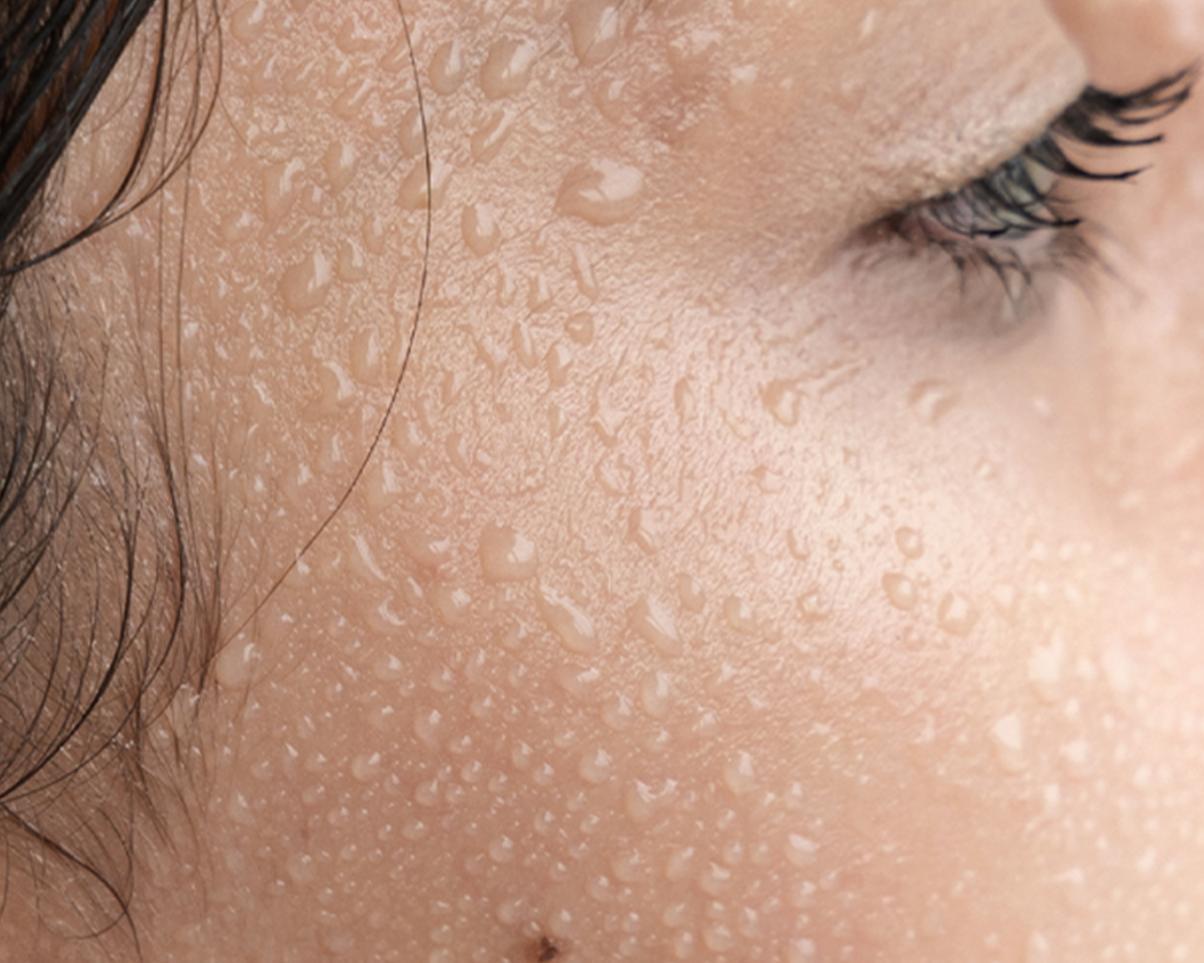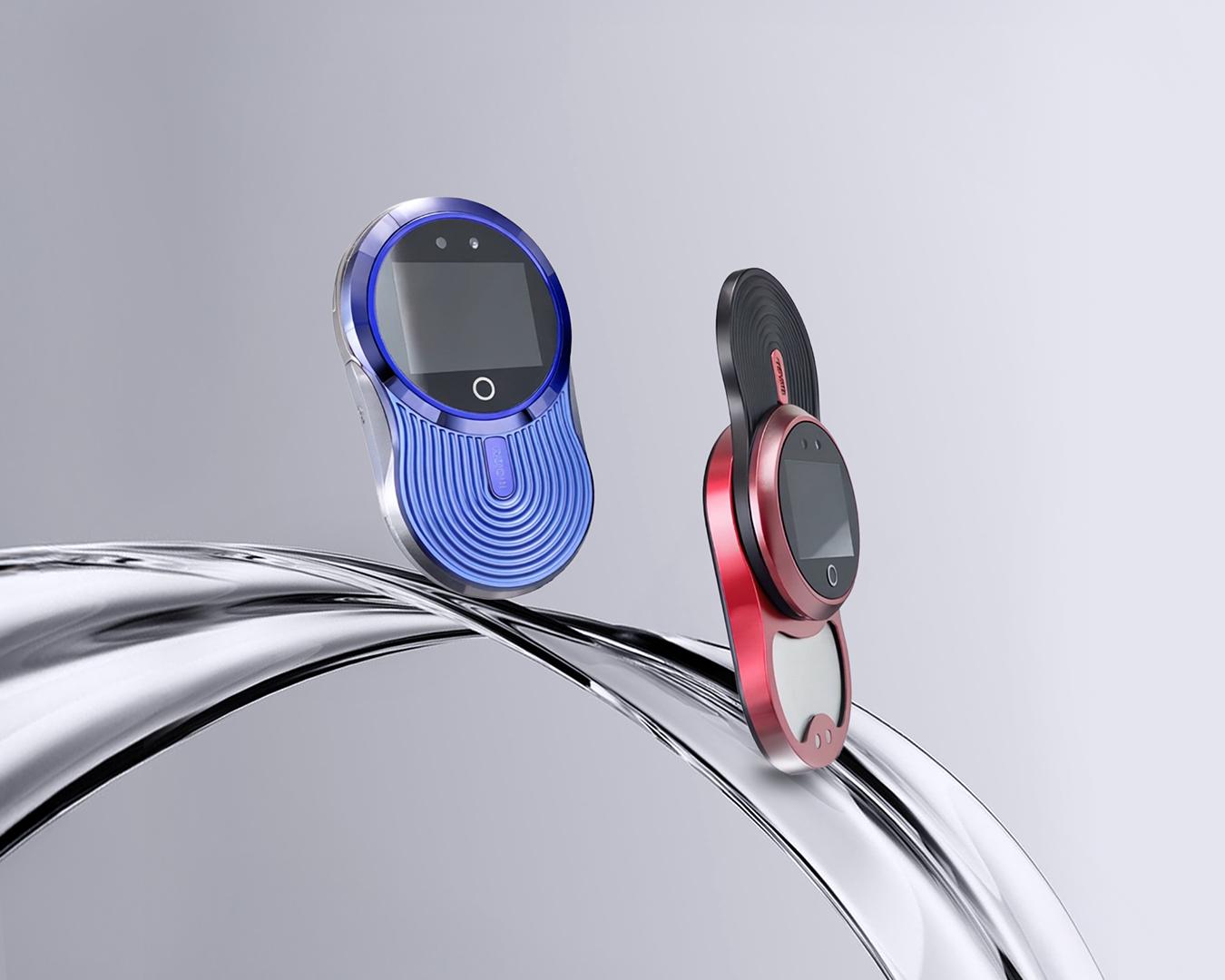Yes — high humidity and heat alter skin’s surface, disrupt absorption, and speed the breakdown of key actives. This “humidity-stressed skin” effect is one of the biggest reasons why summer and tropical formulations underperform in real life, despite passing lab stability tests.
In this blog, we’ll look at the physiology of humidity-stressed skin, why it matters for product performance, and how Nuon Medical’s packaging-integrated delivery technologies protect efficacy and user experience — without requiring a formula overhaul.
In warm, moisture-rich environments:
- Sweat films dilute actives and create a “rinse-off” effect.
- Sebum overproduction forms a lipid barrier that blocks water-soluble ingredients.
- Increased skin temperature accelerates degradation of unstable actives like vitamin C and avobenzone.
- Persistent occlusion changes microbiome balance and skin tolerance.
- Clinical note: In vitro sweat models show up to 30% lower absorption of water-based actives on oily, humid skin.
Most brands focus on stabilizers and reformulations — but in-field results show that delivery methods and packaging design can be just as critical. Nuon Medical’s technologies are engineered to:
- Preserve active integrity at the point of application
- Improve penetration despite barrier resistance
- Maintain packaging durability in tropical supply chains
High humidity often means high skin temperature, which speeds chemical breakdown. Nuon’s thermoelectric applicators:
- Lower skin temperature by 2–5 °C during application
- Stabilize heat-sensitive actives against early degradation
- Improve comfort for reapplications on sweat-prone skin
Example: SPF products show improved avobenzone stability and reduced irritation during outdoor trials.
In humid climates, SPF breakdown is faster, but compliance drops. Our UV Lens Touch-Up Case:
- Monitor cumulative UV exposure
- Send real-time reapplication alerts (LED, haptic, or app)
- Boost SPF adherence by 2.4× in field studies
Learn more about our UV-sensing packaging solutions.
Sebum-heavy, humid skin resists water-based actives. Low-level microcurrent:
- Increases permeability by 27.2% (Jeong et al., 2022) in heat-exposed conditions
- Facilitates deeper ion-based active transport
- Works without discomfort or irritation
Best for: Peptide serums, hydrating masks, antioxidant treatments.

Humidity leaves skin semi-occluded — especially in the T-zone. Sonic vibration applicators:
- Disrupt surface occlusion for even active spread
- Improve penetration by 21.8% in humid model tests (Park et al., 2021)
- Support better delivery without increasing concentration

Humidity-stressed skin is predictable — and preventable.
By pairing smart delivery modules with climate-resilient materials, Nuon enables brands to protect active stability, maintain product performance, and elevate user trust in high-humidity conditions.
Contact Nuon Medical to integrate cooling, sensing, and precision delivery into your next summer or tropical launch.
1. Why do formulas fail in high humidity?
Heat and moisture change the skin barrier, reduce absorption, and destabilize certain actives.
2. Can Nuon’s applicators be used without changing my formula?
Yes — they integrate into packaging to boost delivery performance.
3. What proof supports these improvements?
In vitro and field tests show 27.2% improved absorption with microcurrent and 21.8% with sonic vibration.